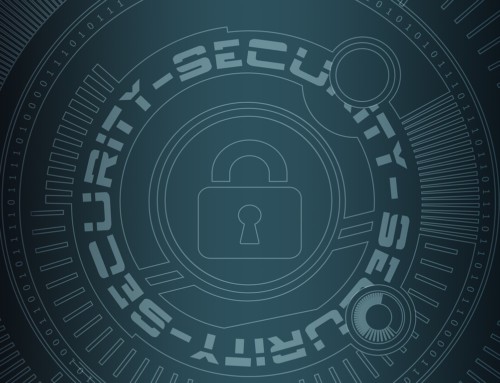
Internet Privacy is not dead as many would like to say. Yes, you are constantly under a threat when you go online. Cybercriminals, governments, and corporations want to get your personal data. But, if you protect your own privacy online you can get a safe personal space on the Internet.
These Internet Privacy facts can help you get that personal space online and stay safe while using the Internet.
Fact 1: Internet Privacy does matter
If it didn’t then all our personal data and online activities - emailing, e-banking, online shopping, data searching, health records, bank and credit card information would be open and public for anyone to see.
So, do you think you have “Nothing to Hide”? Internet Privacy matters because without it anything that we do online could become entirely public and we could be monitored, controlled, threatened…
Fact 2: Ads are following, when you browse the Internet
You may have already noticed this.
When you go from site to site, the same ads pop or show up, based on your earlier web searches or visits to websites?
That is because advertisers track your online movements through the websites you visit. They do that with the help of Cookie profiling and other techniques. Your overall activities online are tracked and they create a detailed profile of your browsing habits. So, disable and delete cookies wherever you can.
Fact 3: Internet records are retained - You Are Under Surveillance
It may be the government who does that - to assist law enforcement agencies. For example, the UK’s Snoopers Charter allows the government to legally monitor the Internet usage of its citizens.
Or, the Internet Service Provider companies or Telecom operators, or even the communication service providers, even though not always required to retain customers’ Internet connection records, they still store that data for a longer period. These data can be obtained by government authorities and used in investigations – even if you’re not related to them in any way!
Your Internet Service Provider (ISP) can not just monitor your Internet activity and filter your email but they can disregard websites from showing you or slow them down. Your ISP is your gateway to the web. Any Internet activity connected with that IP address leaves an electronic footprint that everybody, from Google, your ISP, to advertisers can use to monitor you.
Also, almost every service online archives your info with an excuse to “improve your experience.” They know what you’ve searched for and may know your internet browsing history. But that’s only the start. They may have a record of all your emails, telephone calls, alerts, schedule, contacts, photos, places and more, much more.
Fact 4: People who are online consistently, have had personal information stolen online
A staggering 17 million Americans have been affected by identity theft in 2017, according to Javelin Strategy.
Cybercriminals use the Internet to steal people’s identities, hack into their accounts, trick them into revealing the information or infect their devices with malware.
Malware, spyware, and phishing techniques are used to break into your online accounts or device and steal your personal information to engage in activities like identity theft.
Social engineering is a tactic used by cybercriminals that use lies and manipulation to trick people into revealing their personal information. The victims end up losing data and/or money just because they didn’t exercise caution when it comes to opening attachments, clicking links, sharing credentials with unknown sources.
Fact 5: Opening Suspicious Attachments or Downloading Malicious Files could cost you a fortune
The previous fact should make you aware of the malicious online activities cybercriminals take to get into people’s accounts. This fact should make you aware that hacking into your account could not only cost you Identity theft, but it could require money to save something from the hacked data.
You should be careful when opening attachments in emails or on social media, as they could contain malware and viruses. Similarly, always downloads files from trusted sources because it may result in a virus infection.
Fact 6: Reusing passwords make your data hackable
Although it easier to reuse a password for multiple devices or services, but if a cybercriminal is able to gain access into one of your accounts, they could get into other devices or services.
So, take a few minutes to get a secure password manager and learn how to use it, or, for home devices, write down your passwords in a securely stored notebook.
Fact 7: By Using Services without reading their Terms & Conditions you can grant them access to all kinds of data
When you visit a website, never click “Agree” until you understand what you’re agreeing to. Most modern sites have what’s called a “Privacy Policy.” This is a document that summarizes what information the website can/cannot collect from you as soon as you use that. In addition, it has the way the site can/cannot (or will/will not) use or discuss this information.
So, take some time and have a read over these Policies because you wouldn’t want to legally grant companies and service providers access to all kinds of data.
Fact 8: Using an old version of software or OS make you prone to hack-attacks
Anything that is connected to the Internet, should be, if possible, auto-updated. If not, take your time and update your devices, OS, and applications to the latest versions.
Most often they contain security updates, which updates to discovered and resolved security holes, so they make sure to patch those holes and stop hackers from exploiting them to hack into your devices.
Fact 9: Two-factor authentication reduces the risk of someone else accessing your accounts
For every service that it is offered, turn on two-factor authentication. It means that you will combine the password (something you know) with a code, for example, sent to your mobile device (something you have).
So, if someone only has your username and password they can’t login as you, and that’s really important because there are a lot of breaches and companies lose databases of their users’ passwords all the time.
Fact 10: The desire for Internet Privacy will not decrease
As a matter of fact, it will only increase with time.
There is always someone who want to track our data and activities, so more and more Internet users realize the importance of protecting privacy and personal data. This is evident from the fact that over the last few years, there has been significant growth in the use of encryption technologies.





I am afraid incognito mode keep your online privacy. It is just for a guest user. Hilariously people think it works.I prefer using vpn like purevpn for online safety and privacy. Moreover get a dedicated ip form purepvn for higher stability.